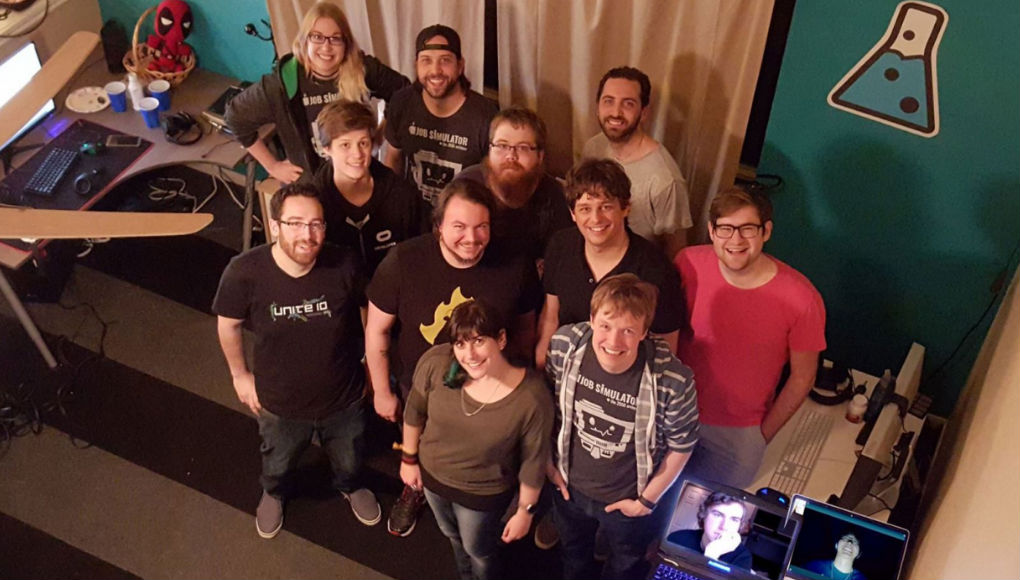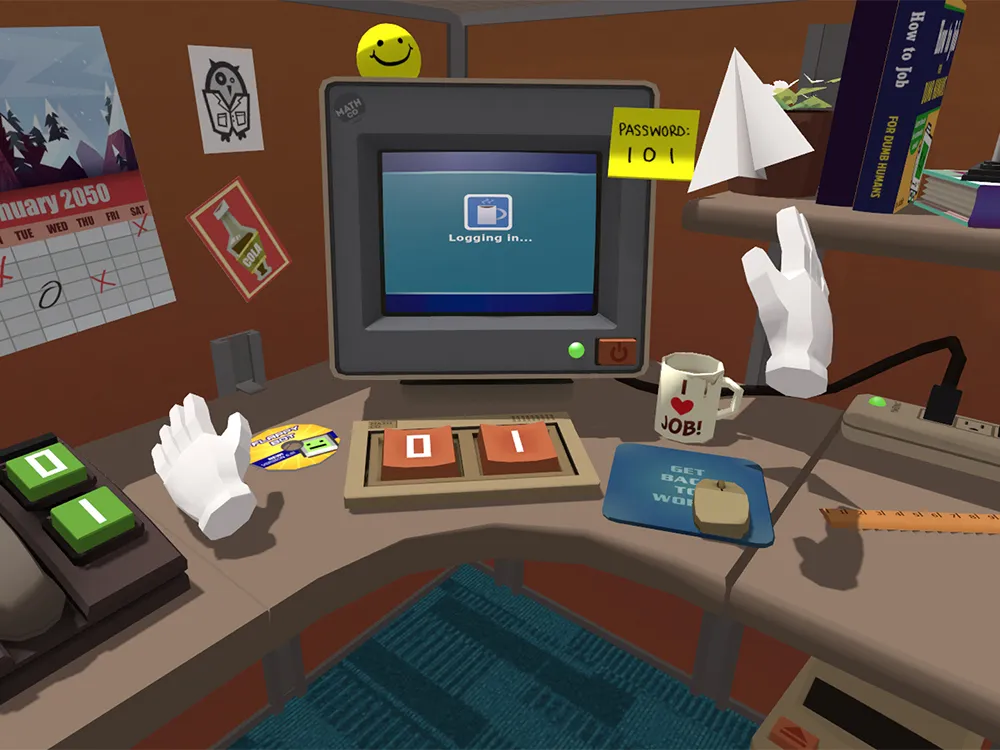When Alex Schwartz and Devin Reimer received the first Oculus Rift development kit back in 2013, they spent a month getting their first experience up and running. According to Schwartz, the CEO of Owlchemy Labs, that meant one day getting their game displayed inside the goggles followed by 29 days of making themselves sick.
That stomach-churning early experimental work in VR as well as the thousands of hours spent by Reimer toiling away at fundamental interaction and simulation algorithms over the last few years is paying off today in the form of a $5 million round of Series A investment led by Qualcomm Ventures.

The independent game development company was started up in 2010 but switched its focus to VR early on, using their head-start to make bundled launch title Job Simulator for the HTC Vive. The game is thematically silly — putting you in a cartoon world to perform the job of a store clerk, chef, auto mechanic or office worker — but its underlying physics and simulation subsystems could power any number of experiences. The game (review) is coming to Oculus Touch and PlayStation VR too, and in recent weeks Owlchemy announced a new project inspired by the popular cartoon Ricky and Morty built on the pioneering technologies in Job Simulator.
“We were able to build this so much faster and easier because of everything we did in Job Simulator,” Schwartz said.
Read More: Why It Takes 850 Hours To Make a Cup of Coffee In VR
Owlchemy’s $5 million Series A round of investment doubles what early VR developers Kite and Lightning raised recently for their expansive multiplayer universe. Owlchemy, with 16 employees plus a number of contractors, became a leading development studio by making smart use of early access they gained to developer versions of the HTC Vive. They were one of the first to try room-scale VR from Valve in early 2014 too.
“We walked out [of the room] like unable to speak,” Schwartz said. “That’s when we knew there would be no more non-VR in our future.”
In a blog post tracing the company’s story, Owlchemy describes just how early their access was to development hardware, and what they did with it.
These headsets were so early that raw PCBs [printed circuit boards] were hot glued to the front with wires poking out that would shock your hand if you touched them in the wrong spot. With one hand made prototype, a half broken tracker, and two tracked controllers, we sat down and threw out everything we knew about VR and started to experiment. Instead of trying to build out a design that was in our heads, we simply tried to figure out what could be done with tracked hands in VR and the ability to move about a space. It turned out physics and realistic hand interactions created a childlike playfulness and manipulating objects in the world was compelling. It was here that the beginnings of Job Simulator emerged.
This process of thoughtful experimentation in VR that started with the Rift and continued to the HTC Vive is still true today for Owlchemy as they work on “a number of unannounced projects” as well as Rick and Morty and additional content for Job Simulator. When asked about their long term plan, Schwartz said they selected investors who supported their need to explore the market and remain agile as new products emerge.
“The earlier to market you are the more your assumptions can destroy you,” Schwartz said. “We know our next few moves and we trust in our sense of where the industry is going, so planning too far ahead can actually be harmful in such a whirlwind industry.”
Joining the Series A round with Qualcomm are HTC, The VR Fund, Colopl Next, Capital Factory, and Austin-area technology investors. Owlchemy’s official mission statement is to build “absurd and polished games,” and they’ve previously developed and published a number of titles for desktop and mobile including Dyscourse, Jack Lumber, Snuggle Truck and Aaaaaculus!


























